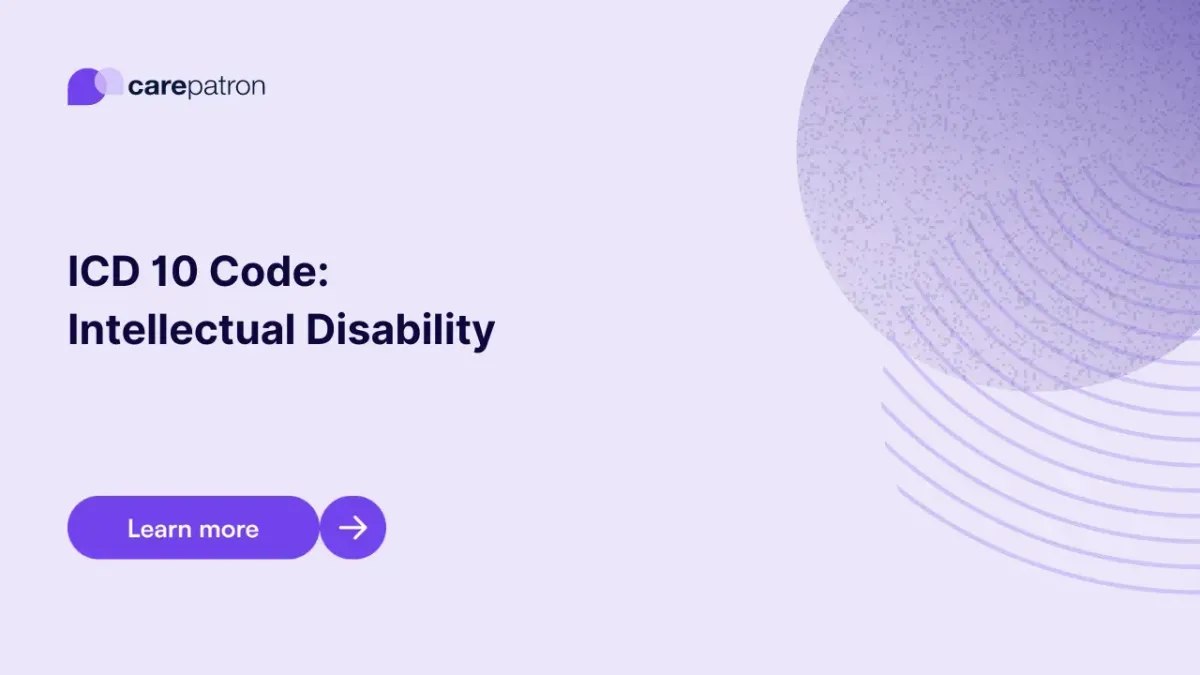
Intellectual Disability ICD-10-CM Codes
Explore ICD-10-CM codes for intellectual disability. Learn about standard codes and billable statuses, and gain clinical insights in this comprehensive guide.
Use Code
Commonly asked questions
An IQ of 29 falls within the range for severe intellectual disability, and the correct ICD-10-CM code is F72. This code is used for individuals with significant limitations in intellectual functioning and adaptive behaviour, typically requiring substantial support in daily living.
F79 is the ICD-10-CM code for unspecified intellectual disabilities. It is used when an intellectual disability is known or suspected, but the severity cannot be reliably assessed, often due to young age, lack of testing, or incomplete clinical information.
The four main categories of intellectual disability, based on severity, are: mild (F70), moderate (F71), severe (F72), and profound (F73). These classifications are determined by IQ scores and assessments of adaptive functioning.
EHR and practice management software
Get started for free
*No credit card required
Free
$0/usd
Unlimited clients
Telehealth
1GB of storage
Client portal text
Automated billing and online payments
